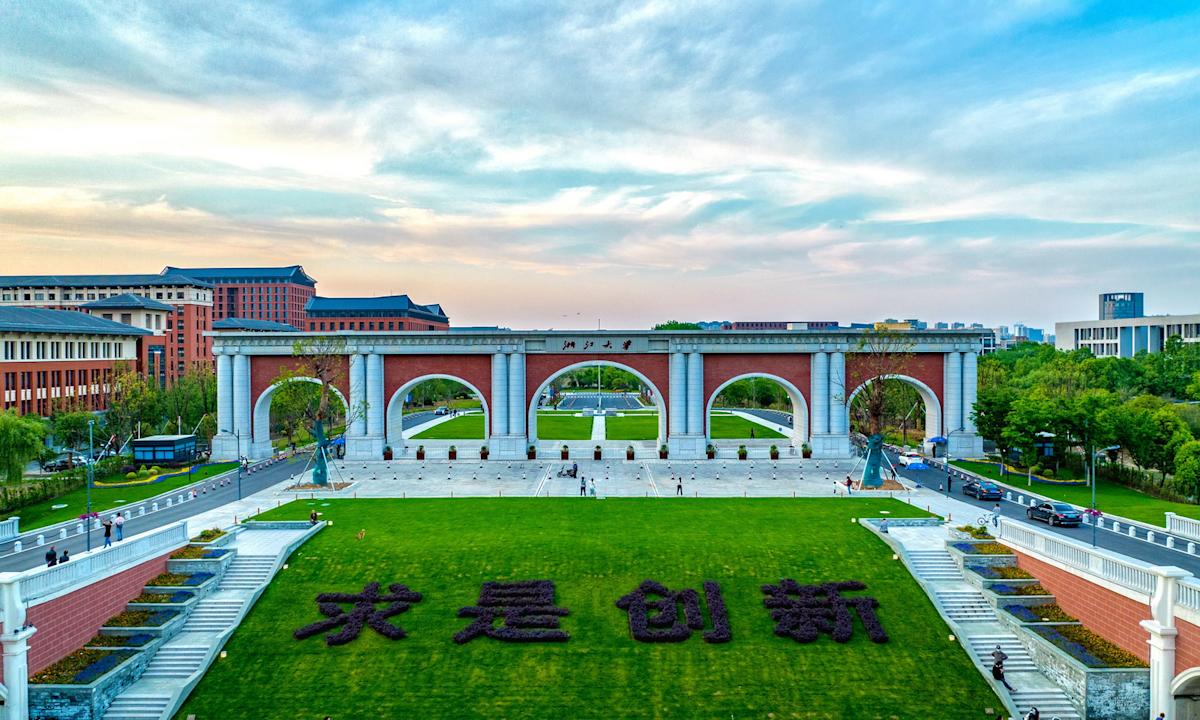Nurturing the Next Generation of Tech Leaders at Zhejiang University in China

Exploring Hangzhou’s Rise as a Global Innovation Leader
Background of Hangzhou’s Tech Boom
Hangzhou, a vibrant city in China, has emerged as a key player in global technologies, particularly in its educational support for fostering innovators and entrepreneurs. A recent publication titled Hangzhou Code: How the "Six Little Dragons" Took Flight sheds light on this phenomenon by examining the ecosystem that promotes technological advancements. These advancements are largely shaped by local institutions, notably Zhejiang University (ZJU), which has played an essential role in nurturing tech talent.
The Role of Zhejiang University
Zhejiang University, established over 128 years ago, serves as a cradle for upcoming tech leaders. Notable alumni include Liang Wenfeng, the founder of DeepSeek, one of the rising stars among the "Hangzhou Six Little Dragons." Liang’s journey began at ZJU’s College of Information Science and Electronic Engineering, which has consistently provided a strong foundation for innovators. Other successful startups, such as DEEP Robotics and Manycore Tech, also trace their roots to this prestigious university, showcasing ZJU’s influence in cultivating tech entrepreneurship.
A Deliberate Strategy for Innovation
ZJU’s ongoing strategy to develop future-ready talent has been meticulously planned. Programs focused on innovation and entrepreneurship have been in place since 1999, making ZJU a pioneer in this field. Currently, students can choose from over 100 courses related to innovation and entrepreneurship, ensuring a curriculum that keeps pace with technological evolution.
Curriculum Designed for Future Leaders
ZJU has a proactive approach to education, particularly in emerging fields like artificial intelligence (AI). The university established its computer science department in 1978, emphasizing AI as a focal area. As an early mover, ZJU became one of the first institutions in China to offer an undergraduate degree in AI in 2019. This foresight continues to pay off, as the institution leads national programs integrating AI with various other disciplines.
Blending Depth with Breadth
The university strives for a balanced education by combining depth in specific fields with a breadth of knowledge across disciplines. ISEE Dean Chen Hongsheng states that students are trained to master their areas while obtaining skills that allow them to adapt in a rapidly changing world. Such holistic education prepares graduates for leadership in innovative fields.
Hands-On Learning Experiences
At ZJU, theory is complemented with practical application. The university has established itself as a key startup incubator by creating a comprehensive ecosystem for entrepreneurship. Over 80% of undergraduates participate in hands-on research or industry projects. This engagement often includes international internships and competitions that enhance their practical knowledge.
Real-World Impact Through Competitions
Students like Zhu Qiuguo, who founded DEEP Robotics, attribute their successes to the hands-on experiences gained at ZJU. Participating in international competitions, such as RoboCup, allowed them to refine both their theoretical knowledge and practical skills. Zhu emphasizes that such contests push students to merge theory with real-world challenges, offering a valuable learning blend that fosters innovation.
Commitment to Purposeful Innovation
ZJU’s motto, “Seeking Truth, Pursuing Innovation,” goes beyond mere words; it is a guiding principle. The university seeks to develop not just innovators but responsible citizens who will use technology for societal benefits. Wang Wei, the deputy dean of ISEE, explains that equipping students with innovative skills is paired with nurturing a sense of responsibility.
Student Innovations with Social Impact
Projects at ZJU often focus on social applications. For example, student Ye Bowen created an award-winning augmented reality safety tool for delivery workers inspired by the idea that technology should enhance quality of life. His mentor, Yang Zongyin, represents ZJU’s spirit of meaningful innovation. Yang, a Ph.D. graduate who returned as a professor, has been instrumental in pioneering technologies like the world’s smallest spectrometer, which could revolutionize non-invasive health monitoring for diabetics.
Shaping the Future of Technology
Zhejiang University’s strong academic foundation, industry collaboration, and commitment to impactful innovation position it as a leader in shaping the future of technology. As the “Hangzhou Six Little Dragons” rise in prominence, ZJU remains a crucial player in nurturing the next generation of tech leaders equipped to thrive in an ever-evolving landscape.





